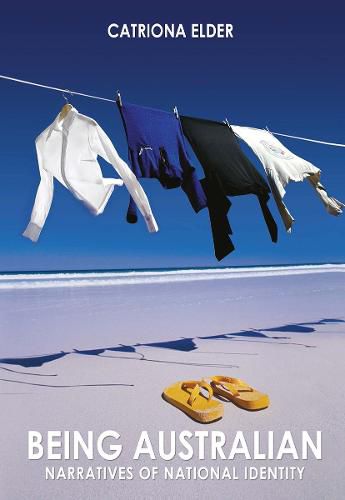Readings Newsletter
Become a Readings Member to make your shopping experience even easier.
Sign in or sign up for free!
You’re not far away from qualifying for FREE standard shipping within Australia
You’ve qualified for FREE standard shipping within Australia
The cart is loading…






After a century of speculation by writers, filmmakers, travelers and scholars, being Australian’ has become a recognisable shorthand for a group of national characteristics. Now, in an era of international terrorism, being seen as un-Australian’ has become a potent rhetorical weapon for some, and a badge of honour for others.
Catriona Elder explores the origins, meaning and effects of the many stories we tell about ourselves, and how they have changed over time. She outlines some of the traditional stories and their role in Australian nationalism, and she shows how concepts of egalitarianism, peaceful settlement and sporting prowess have been used to create a national identity.
Elder also investigates the cultural and social perspectives that have been used to critique dominant accounts of Australian identity, including ideas of class, gender, sexuality, ethnicity and race. She shows how these critiques have been, in turn, queried in recent years. Being Australian is an ideal introduction to studying Australia for anyone interested in understanding Australian society, culture and history.
$9.00 standard shipping within Australia
FREE standard shipping within Australia for orders over $100.00
Express & International shipping calculated at checkout
After a century of speculation by writers, filmmakers, travelers and scholars, being Australian’ has become a recognisable shorthand for a group of national characteristics. Now, in an era of international terrorism, being seen as un-Australian’ has become a potent rhetorical weapon for some, and a badge of honour for others.
Catriona Elder explores the origins, meaning and effects of the many stories we tell about ourselves, and how they have changed over time. She outlines some of the traditional stories and their role in Australian nationalism, and she shows how concepts of egalitarianism, peaceful settlement and sporting prowess have been used to create a national identity.
Elder also investigates the cultural and social perspectives that have been used to critique dominant accounts of Australian identity, including ideas of class, gender, sexuality, ethnicity and race. She shows how these critiques have been, in turn, queried in recent years. Being Australian is an ideal introduction to studying Australia for anyone interested in understanding Australian society, culture and history.